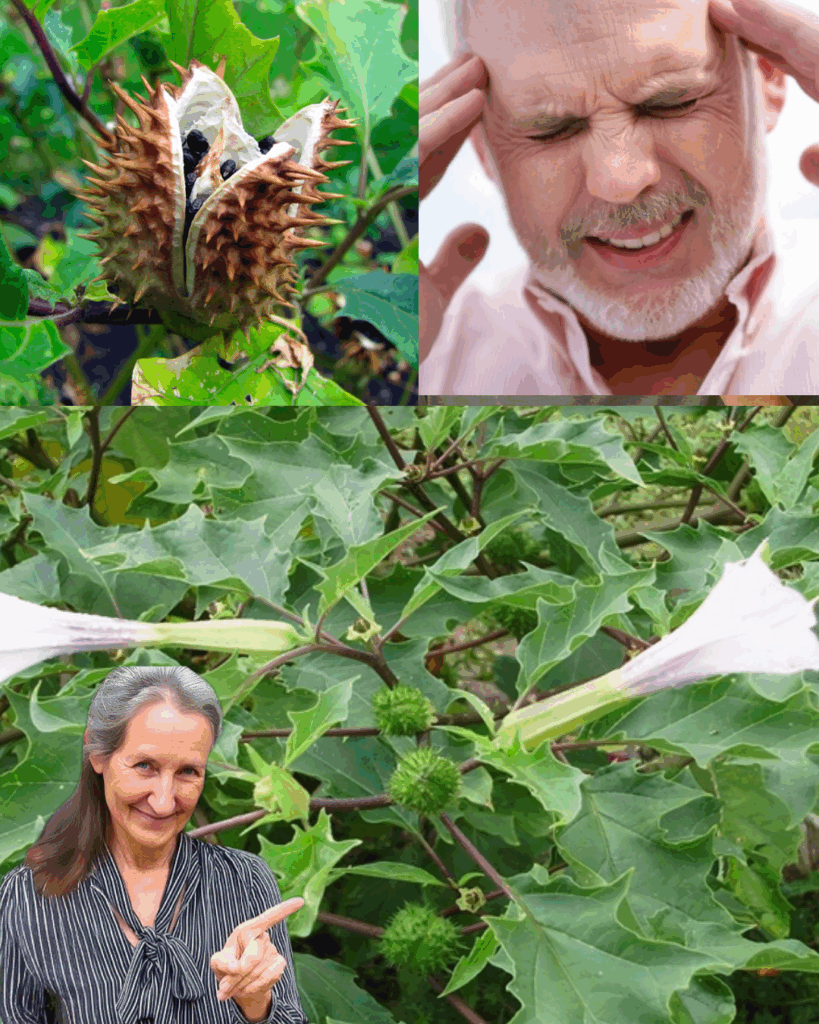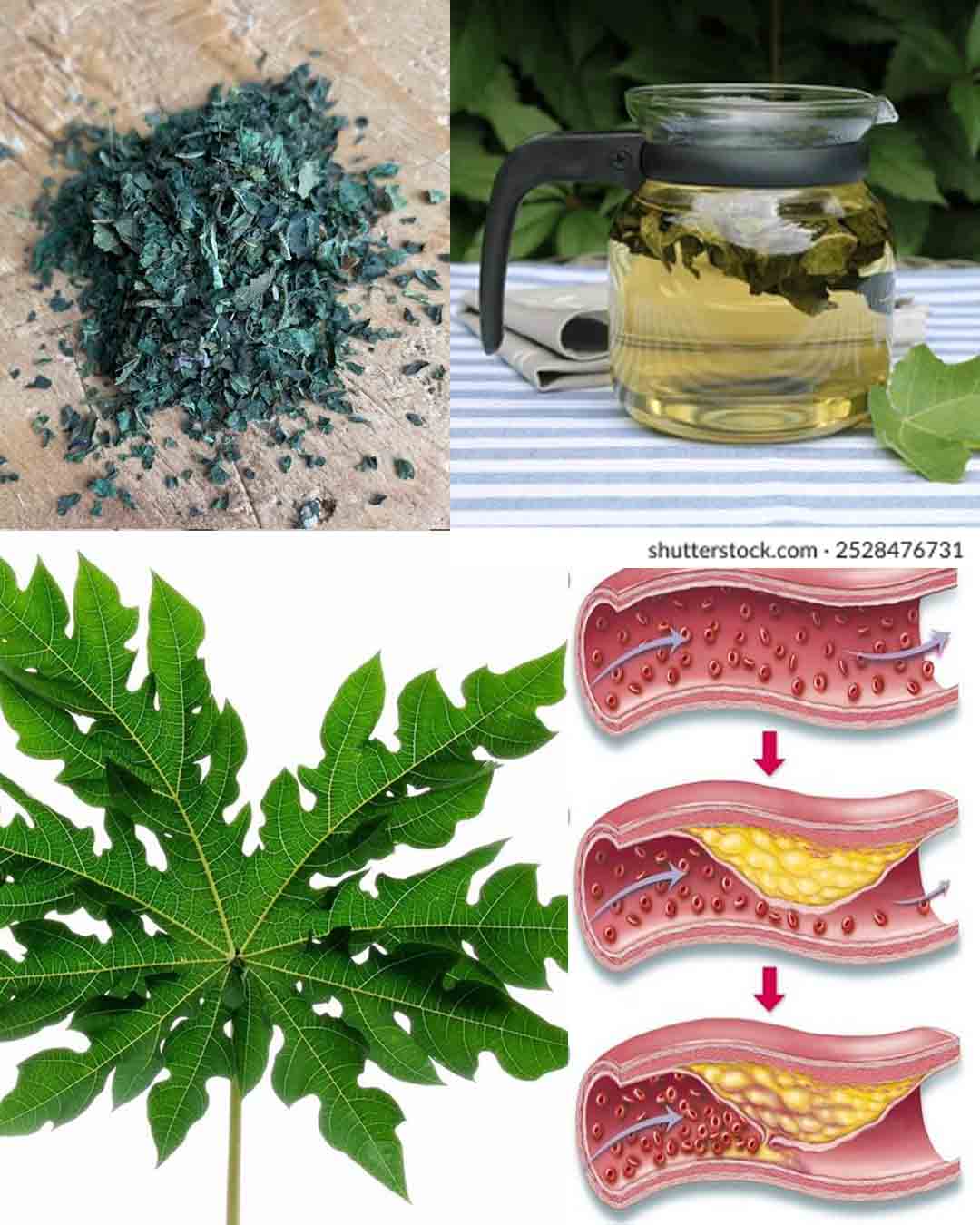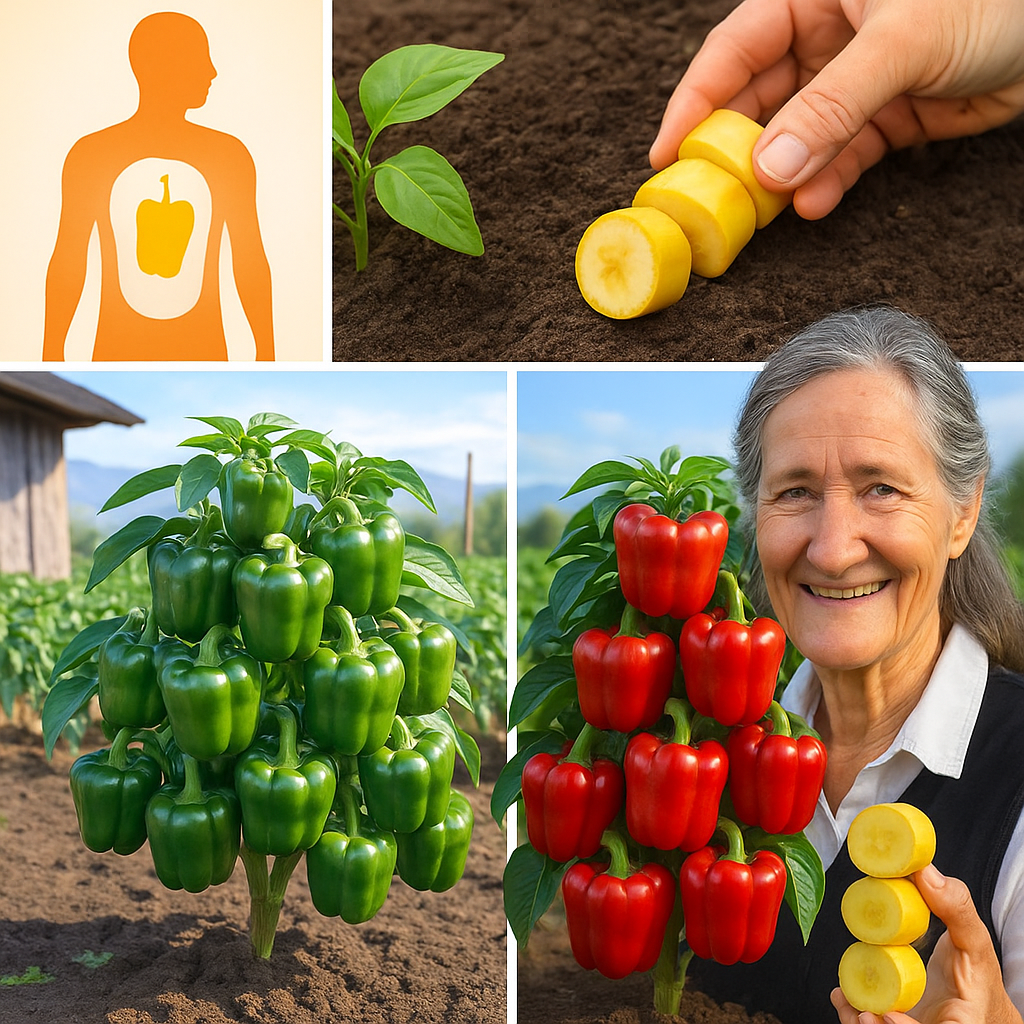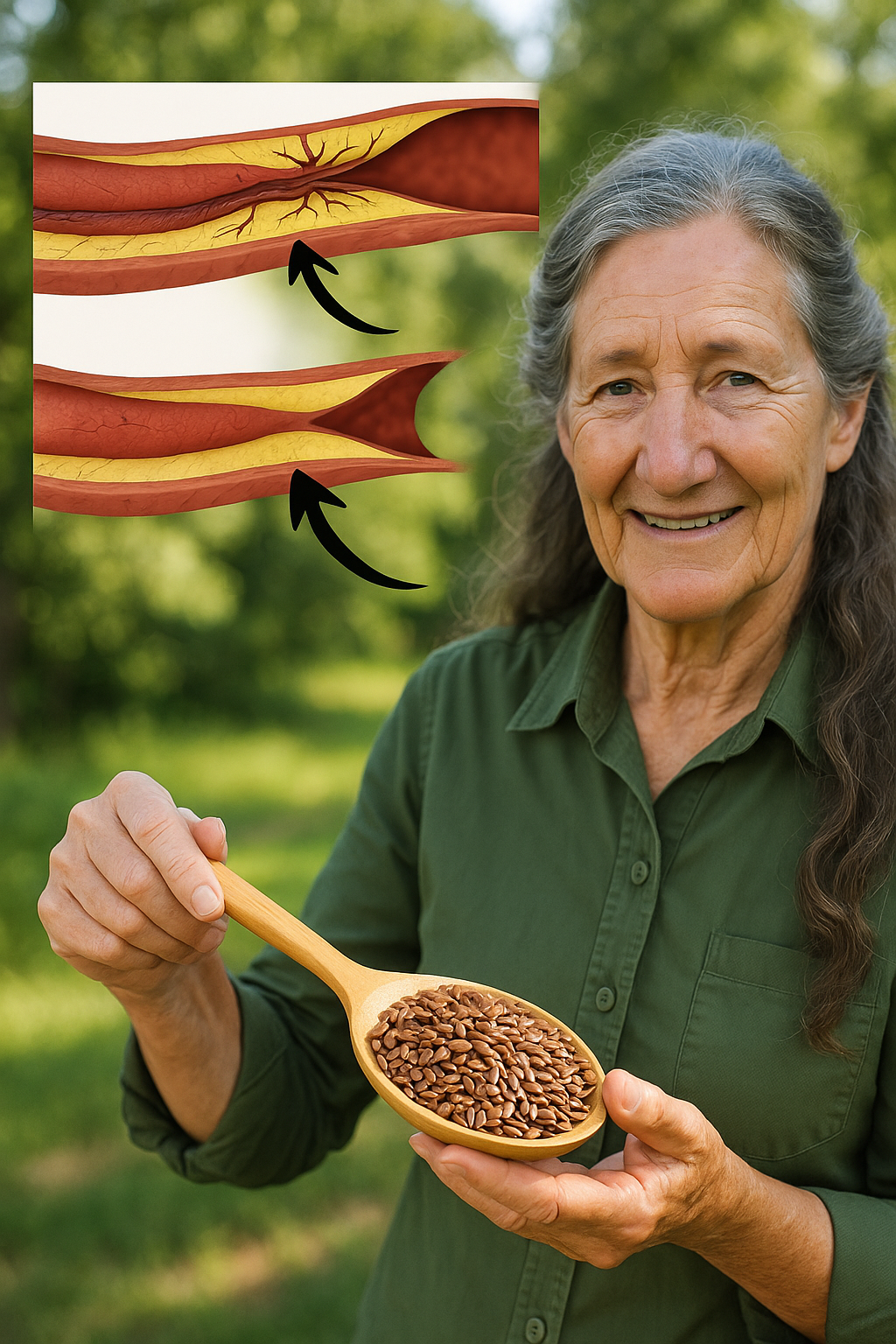Vibrant, striking, and filled with lore—Datura, also known as “Cà độc dược” or Mạn đà la, is one of nature’s most enigmatic medicinal plants. Used traditionally to soothe coughs, ease asthma, and even reduce skin swelling, this powerful herb has earned a place in ancient remedies across the world.
But beneath its beauty lies a potent toxicity. Misuse can lead to serious health consequences, and even small doses must be treated with caution. So, what exactly makes datura both a healer and a hazard?
Let’s uncover the remarkable benefits—and serious risks—of this ancient plant that not everyone dares to touch.

🌿 What Is Datura? A Plant Both Beautiful and Dangerous
Datura is a perennial herbaceous plant that can grow up to 2 meters tall. Its stems are smooth and often green or purple, with soft hairs on young branches and elliptical leaves that vary in size. The plant produces funnel-shaped flowers—most commonly purple or white—and spiky, round seed pods that split open when mature.
While it’s visually stunning, every part of the plant contains alkaloids—powerful natural compounds that can affect the nervous system.
🌍 Origin & Distribution
Originally native to Peru and Mexico, datura has since spread to many tropical and subtropical regions, including provinces in southern Vietnam such as Tiền Giang, Bến Tre, and Hậu Giang. Its growth is often encouraged for medicinal use—but only by trained herbalists.
🧪 Active Compounds in Datura
Datura’s effects come from its high alkaloid content, including:
- Atropine
- Scopolamine
- Hyoscyamine
- Norhyoscyamine
- Vitamin C
These substances have strong physiological effects, particularly on the nervous system, respiratory tract, and digestive system—which is why dosing must be precise and professional.
💊 Medicinal Uses of Datura (When Used Correctly)
In traditional Eastern medicine, datura leaves and flowers are used to make decoctions or poultices to treat specific conditions. Common uses include:
✅ Joint and Bone Support
Used to reduce inflammation and pain in cases of rheumatism or joint discomfort.
✅ Sciatica and Nerve Pain Relief
Datura helps soothe nerve pathways, especially in sciatica and other radiating pain disorders.
✅ Boils and Skin Swelling
Applied topically, it can calm painful skin inflammations, drawing out heat and toxins.
✅ Vomiting Relief
Helps manage nausea and persistent vomiting.
✅ Sinusitis Management
Used to clear nasal blockages and reduce inflammation in sinus infections.
🌼 Only the Leaves and Flowers Are Used Medicinally
Unlike many herbs, not all parts of datura are usable. Only the leaves and flowers are considered safe for herbal preparation—and even then, only when dried and administered by experienced practitioners.
Harvesting typically takes place just before or during the flowering period. After collection, the materials are dried gently and stored away from moisture to preserve potency.
⚠️ Warning: Datura Can Cause Severe Side Effects
Because of its potent alkaloid content, improper use can result in dangerous side effects, including:
❌ Dry mouth
❌ Blurred vision
❌ Rapid heartbeat
❌ Difficulty urinating
❌ Skin redness or rash
❌ Hallucinations or confusion
❌ Muscle spasms
❌ Fever and excessive sweating
❌ Coma or death from overdose
Even mild overuse can lead to unsettling symptoms. Datura is not a plant for experimentation—it must be handled with the same respect as a prescription drug.
🚫 Who Should NEVER Use Datura?
Despite its medicinal value, datura is strictly contraindicated for certain individuals:
🔸 Pregnant or breastfeeding women – Can affect fetal development and reduce breast milk supply
🔸 Heart disease patients – Can dangerously increase heart rate
🔸 People with high blood pressure or glaucoma
🔸 Anyone with digestive ulcers or reflux
🔸 Patients with Down syndrome or neurological disorders
🔸 Those with urinary obstruction or kidney issues
🔸 Children and the elderly, unless under strict supervision
If you fall into any of these categories, do not consume datura in any form.
🧪 Dosage and Usage in Traditional Medicine
Datura is always used in small, controlled doses, typically as a decoction. The correct amount depends on the patient’s age, condition, and constitution, and must be determined by a qualified herbalist or doctor.
Self-prescribing this herb is extremely dangerous.
🌱 Final Thoughts: Respect the Power of Nature
Datura is a striking example of nature’s duality—it holds healing power but demands careful handling. In trained hands, it can calm chronic conditions and bring relief where modern medicine sometimes falls short. But in the wrong hands, it becomes toxic—fast.
✅ If you’re curious about natural remedies, always consult a licensed professional before trying herbs like datura.
✨ In natural healing, wisdom is as important as the remedy. Datura is proof that powerful things often come with conditions. Handle with care—and respect.


